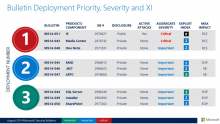Second zero-day flaw found in Adobe Flash thanks to Hacking Team
Earlier this week an exploit for Adobe Flash was revealed -- a shock, I know. Now a second is in the wild and already being used. Known by the catchy name CVE-2015-5122, security firm FireEye discovered the flaw buried in the Hacking Team leak and alerted Adobe to it.












































































